
Ashley Yeager is the associate news editor at Science News. Previously, she worked at The Scientist, where she was an associate editor for nearly three years. She has also worked as a freelance editor and writer, and as a writer at the Simons Foundation, Duke University and the W.M. Keck Observatory. She was the web producer for Science News from 2013 to 2015, and was an intern at the magazine in the summer of 2008. She holds a bachelor’s degree in journalism from the University of Tennessee, Knoxville, and a master’s degree in science writing from MIT. Her book, Bright Galaxies, Dark Matter and Beyond, on the life of astronomer Vera Rubin, will be published by MIT Press in August.

Trustworthy journalism comes at a price.
Scientists and journalists share a core belief in questioning, observing and verifying to reach the truth. Science News reports on crucial research and discovery across science disciplines. We need your financial support to make it happen – every contribution makes a difference.
All Stories by Ashley Yeager
-
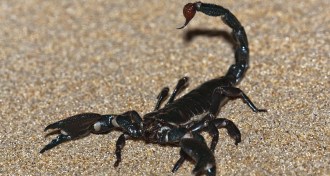 Genetics
GeneticsScorpion’s sting evolved from insects’ defensive proteins
With a single genetic mutation, an insect’s defensive proteins can be transformed into a toxin that gives scorpions their signature sting, a new study shows.
-
 Genetics
GeneticsMicrobe and human genes influence stomach cancer risk
When genes of the bacterium and its human host evolve together, the strain is less harmful than that same strain in a person whose ancestors didn't encounter that particular microbe.
-
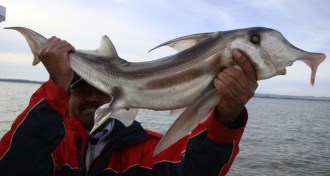 Genetics
GeneticsElephant shark genome small and slow to evolve
The animals have the smallest genome of non-bony fishes and the slowest-evolving genes among vertebrates, a study suggests.
-
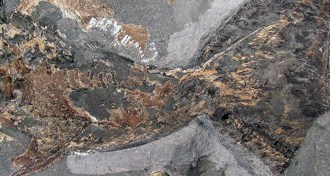
Extinct ocean reptiles now appear in color
Fossilized turtle, mosasaur and ichthyosaur tissue holds skin pigments that give scientists clues about what the animals looked like and how the coloration may have helped in colder climates.
-
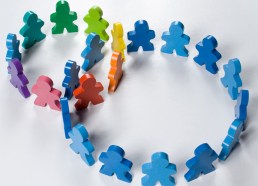
Social networks stay small despite social networking
When adding new friends to social circles, people unconsciously bump others out, keeping social circles small and finite.
-
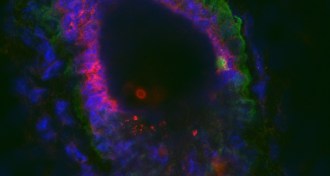 Health & Medicine
Health & MedicineNanoparticle injection blocks breast cancer growth in mice
A nanoparticle-based therapy delivered directly to the mammary ducts could potentially stop pre-cancerous cells from becoming full-blown breast cancer, scientists say.
-
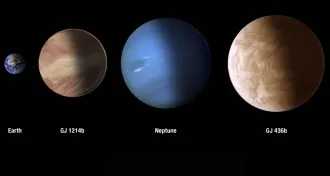 Astronomy
AstronomySigns of cloudy skies seen in two exoplanet atmospheres
Exoplanets GJ 436b and GJ 1214b have signatures of clouds in their atmospheres, but the skies are like nothing seen in the solar system.
-
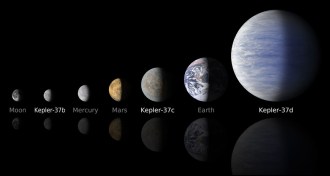
-
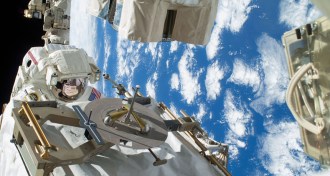 Astronomy
AstronomySpace station pump fixed after two spacewalks
The repair allowed astronauts to restore power to the labs and experiments running on the space station.
-
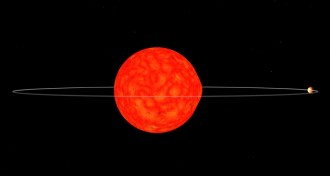 Astronomy
AstronomyExoplanet dangerously close to demise
Kepler-91b could be on the brink of death — at least on astronomical time scales.
-
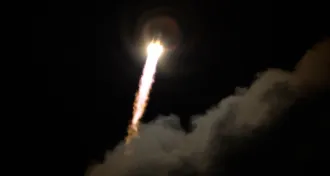 Astronomy
AstronomyGaia spacecraft launches to map Milky Way
The ESA spacecraft blasted off from Europe’s Spaceport in Kourou, French Guiana, at 4:12 am EST.
-
 Neuroscience
NeuroscienceParkinson’s patients drive better with brain stimulation
Patients make fewer errors with a little help from implanted electrodes, at least on a computer.